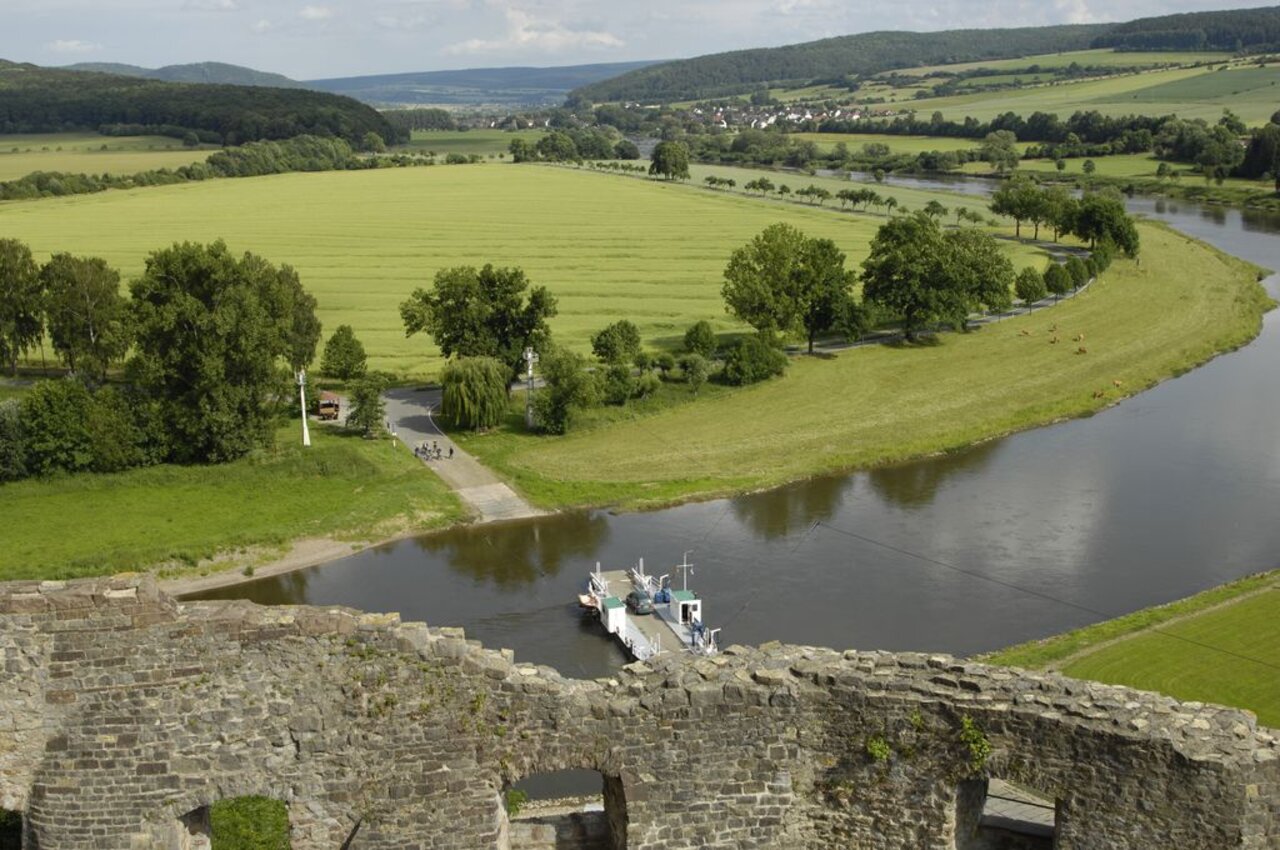Project
Accompanying research of the pilot projekt LandZukunft

LandZukunft is a pilot project of teh Federal Ministry of Food and Agriculture (BMEL). Our accompanying research serves the aim of collecting, arranging and analysing the experiences from the four pilot regions, the districts of Dithmarschen, Holzminden, Uckermark and Birkenfeld. The aim is to reach generalisable conclusions that inform decision makers for the design of upcoming policies.
Background and Objective
The model project runs from 2012 to the end of 2014 in four of an original 17 German counties in selected peripheral regions and follows three core goals:
1. the activation of so-called entrepreneurial people for regional development,
2. the testing of regional budgets and other new financing instruments and
3. testing of governance by individually agreed upon, and contractually binding, objectives.
From these core objectives we derive the central quesions of our research. One of the focal points is the analysis of the initialised participatory processes and their governance. Additionally, we analyse concrete questions that derive from the specific content of the pilot project's implementation in the four pilot regions. In Birkenfeld we concentrate on the involvement of for-profit firms and on the role of the local university in regional development. In Holzminden we observe the mobilisation of village residents via a so called ""Village Competition"" and the re-organisation of tourist support. In the district Uckermark research concentrates on the different institutional forms of resource mobilisation by ""social entrepreneurs"". In Dithmarschen the attempt to optimise the coordination between different local education offerings in a network approach is in the centre of interest.
Approach
First we analyse how the competitive approach and governance by objectives and the related strengthening of autonomy in local decsionmaking affect local development processes. Secondly we analyse how and what participating agents and institutions learn and how the new capabilities affect local development. Another focus is on the analysis of pre-conditions, areas and consequences of entrepreneurial activities and its support. As entrepreneurial activity we describe self-responsible decision-making, which enables people to overcome resource restrictions and to develop new solutions for problems that affect the local community and themselves. In this field of reserach we ask more specifically how new agents are being mobilised and which individual and institutional factors are relevant. Beyond that, we analyse concrete projects and their specific effects in the different regions.
Data and Methods
Due to the broad thematic scope that results from the different approaches in the four pilot regions, we rely on an interdisciplinary approach and a broad spectrum of methods. Observations are analysed from political science, geographical, sociological and economic perspectives. The accompanying research in summary consists of a range of separate studies whose results are jointly considered within the overarching theoretical concept in the final assessment. In the initial competition between 17 pre-selected regions we conducted 17 interviews, each one with representatives of district administration and the external consultant. In order to get an overview on aims, activities and motives of participating agents, we then conducted interviews with nearly all persons involved at that point of time. The 184 guided interviews from this first stage make up an important data source for subsequent inquiries. We analyse them from different points of view with qualitative and quantitative methods, whereas interviews where selected according to the specific question at hand. Additionally we analyse documents on regional strategies and on new governance structues and institutions and the minutes of our own participatory observations of meetings among steering goups and others. For example, minutes and other documents on the education focus in Dithmarschen were analysed in a discourse analytical approach. Thereby we were able to identify different perspectives on education and the development of their relative relevance in the region. In Holzminden we conducted a partly standardised survey among participants in the vallage competition from two villages. The survey and the analysis partly relied on an ego-centered network approach. Another larger standardised phone survey among all applicants for support in the district of Uckermark allows for quantitative statistical techniques of analysis. In all regions we make structured interviews in the firld of governance in order to assess the development of perspectives, knowledge and aims of persons and institutions in the pilot project LandZukunft.
Results
The results demonstrate the huge commitment of local actors in the regions. However, the immediate implementation of the program required large efforts and high skills which may lack at least in the beginning. Management by objectives runs the risk of interest coalitions between controlling and controlled actors in order to spend budgets provided and to demonstrate success stories. Regional partnerships learnt essentially to use the funding instrument of the pilot program. We observed in contrast only few strategy changes or institutional adaptations. Sustainable developments were particularly initiated if these activities were based on existing capabilities and capacities. In conclusion, we derived policy recommendations from our findings. Rural development policy should for instance refrain from using management by objectives if innovative actions are the predominant goal of the policy. Because management by objectives requires some experience to estimate and justify targets and the bargaining thereof between the contract partners, it is not suitable for innovative approaches. Furthermore, strategies pursued should be tightly focused in order to facilitate defining and controlling targets as well as acquiring the expertise needed.
Thünen-Contact

Involved Thünen-Partners
Funding Body
-
Federal Ministry of Agriculture, Food and Regional Identity (BMLEH)
(national, öffentlich)
Duration
11.2011 - 12.2015
More Information
Project status:
finished
Publications to the project
- 0
Küpper P, Kundolf S (2021) Entrepreneurial regions at a dead end: competition, management by objectives and decentralization less effective, efficient and legitimate. European Planning Stud 29(10):1925-1950, DOI:10.1080/09654313.2021.1897529
- 1
Margarian A (2017) Tell me your financing and I tell you who you are : organizations' strategies and project funds' effectiveness. Soc Enterprise J 13(1):53-77, DOI:10.1108/SEJ-08-2016-0040
- 2
Kundolf S, Küpper P, Margarian A, Wandinger C (2016) Koordination, Lernen und Innovation zur Entwicklung peripherer ländlicher Regionen : Phase II der Begleitforschung zum Modellvorhaben LandZukunft. Braunschweig: Johann Heinrich von Thünen-Institut, 574 p, Thünen Rep 41, DOI:10.3220/REP1468222254000
- 3
Margarian A (2014) Frauen auf dem Land - weniger engagiert oder ausgebremst? LandInForm(4):20-21
- 4
Küpper P, Kundolf S, Margarian A (2014) Neue Beteiligungs- und Steuerungsprozesse in der ländlichen Entwicklung : Phase I der Begleitforschung zum Modellvorhaben LandZukunft. Braunschweig: Johann Heinrich von Thünen-Institut, 242 p, Thünen Rep 18, DOI:10.3220/REP_18_2014
- 5
Margarian A (2013) Educating mature citizens or qualified employees? : fundamental tensions in the bottom-up development of a local education system. Ber Inst Verkehr Raum 16:99-120
- 6
Margarian A (2013) Public entrepreneurship for rural development: What hinders women’s engagement? Regions Mag 292(4):16-17
- 7
Margarian A, Pezzei K, Kundolf S, Küpper P (2012) Wie plant man Innovation und Erneuerung? LandInForm(4):40-41
- 8
Margarian A, Küpper P (2011) Identifizierung peripherer Regionen mit strukturellen und wirtschaftlichen Problemen in Deutschland. Ber Landwirtsch 89(2):218-231
- 9
Küpper P (2011) Wertschöpfung und Beschäftigung in peripheren ländlichen Räumen: Modellvorhaben "Land Zukunft" als Versuchslabor. Ländl Raum (ASG) 62(3):33-35

![[Translate to English:] [Translate to English:]](/media/_processed_/2/0/csm_LV_Bei_Hornburg_Quelle_Johanna_Fick_neu_da89674833.jpg)
![[Translate to English:] [Translate to English:]](/media/_processed_/2/0/csm_LV_Bei_Hornburg_Quelle_Johanna_Fick_neu_3aae309567.jpg)





